Japan mourns Abe's murder as questions swirl over motives
Former Prime Minister Shinzo Abe's body has arrived at his home in the Japanese capital, a day after he was assassinated by a gunman in an assassination which shocked the country and the world.
Abe, Japan's longest serving modern leader, was gunned down while making a campaign speech in the western city of Nara on Friday morning.
On Saturday, mourners gathered at his residence and at the scene of the attack, while authorities reviewed security arrangements at the event where Abe was shot from close range by a 41-year-old unemployed man armed with a homemade gun.
A night vigil will be held on Monday. Abe's funeral will take place on Tuesday, attended by close friends, media said. There was no immediate word on any public memorial service.
Information about the attacker and his motives is scant, except police announcement that the man held a grudge against Abe.
The grandson of a World War II-era Cabinet minister, he came from a wealthy and well-connected political family.
He was a conservative and architect of the "Abenomics" policies aimed at reflating Japan's economy. For years, he supported amending the pacifist clauses in the Japanese constitution to upgrade and expand the country's military.
Abe had less success with economic policy which ultimately failed to revive Japan's growth, greatly slowing in the 1990s.
However, he boosted Japan's military spending, expanded his country's alliance with the United States, and implemented major institutional reforms in the country's security establishment.
Nevertheless, Abe was unable to accomplish his goal of revising the country's pacifist constitution, which has not been changed since coming into effect in 1947.
In fact, Japanese citizens' deep aversion to military conflicts, and persistent opposition from even some of his political allies, prevented any constitutional changes.
After the assassination, "there is evidence the Japanese public might welcome a more conventional defense posture", state-owned US broadcaster Voice of America (VOA) wrote on its website.
Abe was a leading Liberal Democratic Party voice in favor of revising the constitution, which was drafted by US-led forces that occupied Japan after World War II.
Current US leaders, however, are in favor of revising Japan's constitution as part of their push to empower allies in Asia to counter China's growing strength.
Abe's killing "heightens the prospect for stronger turnout and greater support for his Liberal Democratic Party (LDP)" which is pushing for a revision of the constitution, Eurasia Group analysts wrote in a note.
Meanwhile, the gunman identified as Tatsuya Yamagami, 41, has been quoted as saying that he had no political motive for this murder.
He said Abe was affiliated with an unspecified organization which caused his family financial problems, local media reported.
Japanese media have not mentioned the name of the organization, but said the organization mentioned by Yamagami was a religious one.
The published pictures of the accused, who formerly served in the Maritime Self-Defense Force, show he was behind Abe and allegedly 10 feet away from him during his speech.
According to Japan's public broadcaster NHK, the man didn't try to flee after shooting the former prime minister.
Washington finalizes $500 million Venezuelan oil sale after illegal military intervention
Iran defense minister says US, Israel orchestrated riots, directed weapons, cash
Female ringleader confesses to contacting Netanyahu to fuel unrest in Iran
Iran’s judiciary rejects ‘fabricated news’ by hostile media about death penalty for rioter
VIDEO | Press TV's news headlines
British complicity in Israeli crimes in Palestine
Iranian forces at ‘highest level’ of readiness, says IRGC amid US threats
FM Araghchi censures US ‘meddlesome, provocative’ policies vis-à-vis Iran


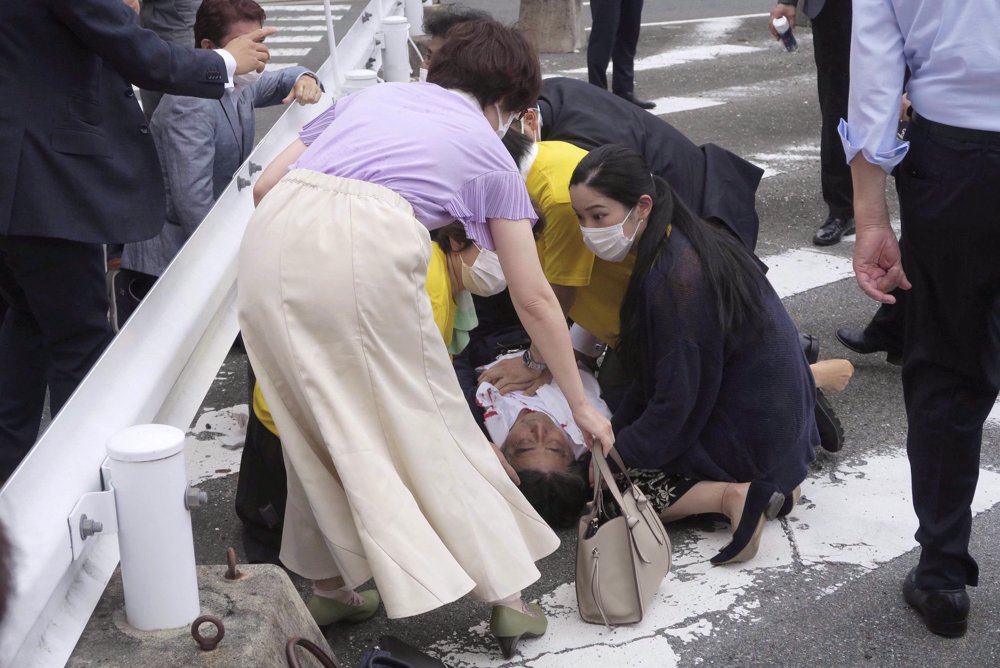

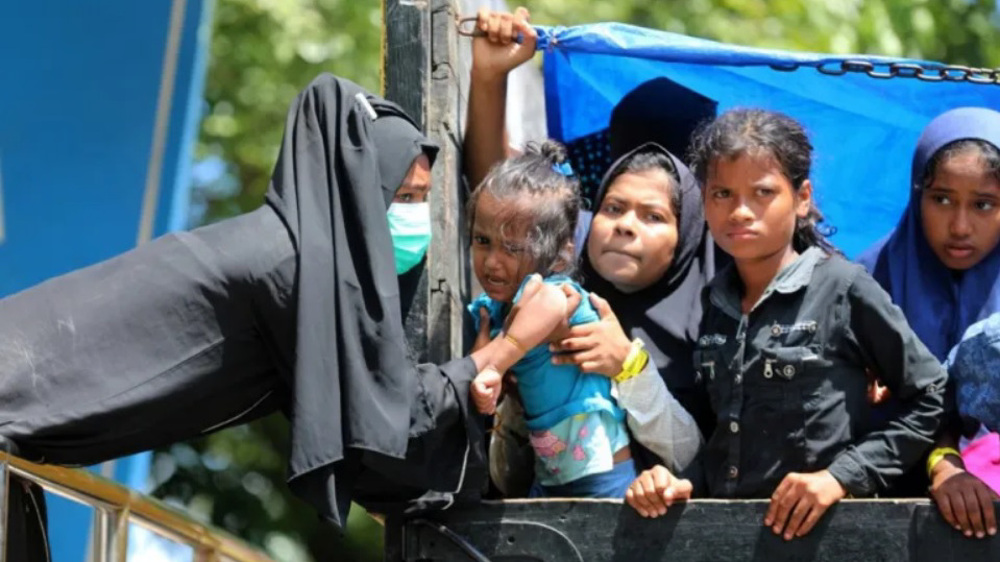




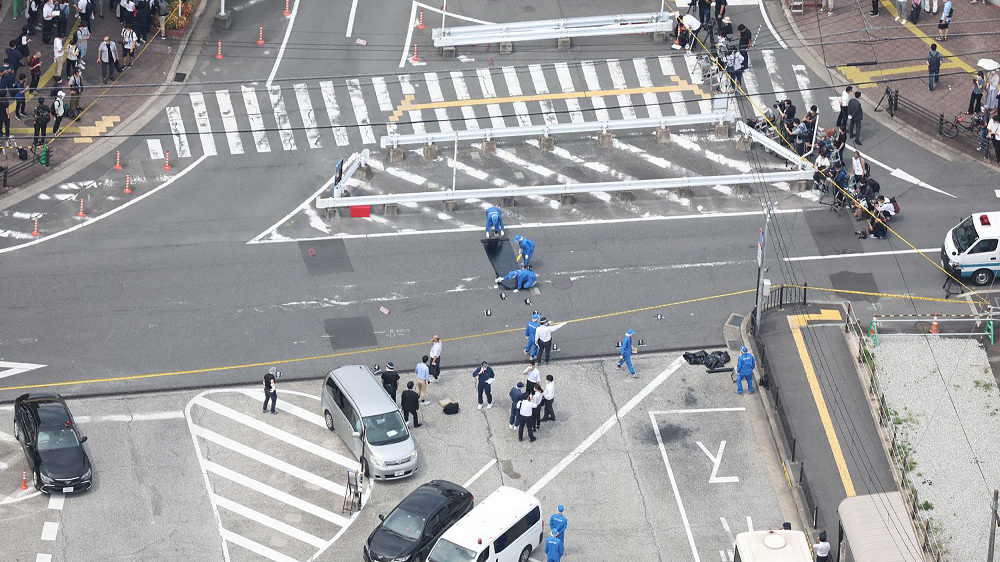
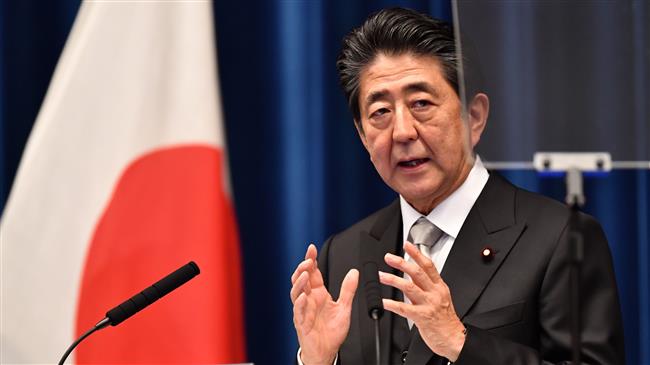
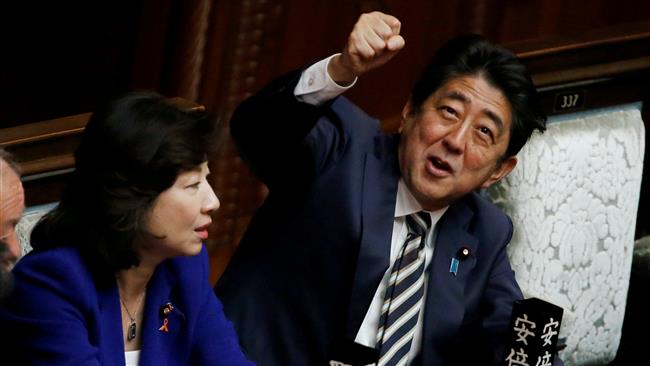

 This makes it easy to access the Press TV website
This makes it easy to access the Press TV website